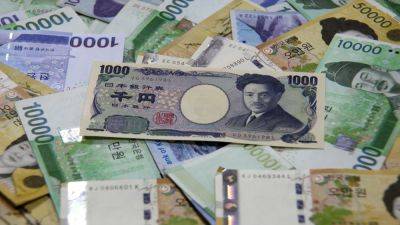Why Japan's 'shunto' wage hikes may not bring cheer to over 80% of its workers
Japan is likely to see the sharpest wage hikes in 33 years following "shunto" negotiations that prompted the country's central bank to raise interest rates for the first time in 17 years on hopes that higher salaries will fuel domestic demand and drive inflation.
But will the "shunto" hikes really work for its legions of salarymen?
The first estimate from the Japanese Trade Union Confederation, or Rengo, indicated that its seven million members would receive 5.28% in salary increments in fiscal year 2024, including a base pay rise of 3.7%.
Unionized workers that are expected to receive the pay bump though made up just 16.3% of Japan's workforce — a record low — as of June 2023, according to the Japan International Labour Foundation.
However, headline inflation, which has been above the Bank of Japan's 2% target since April 2022, hits the entire population.
This means that the generous pay raise negotiated by the unions leave out almost 84% of Japan's workforce.
Richard Kaye, portfolio manager at asset management group Comgest told CNBC in an interview last month that it was "important to bear in mind that the shunto only captures a fraction of Japanese workers, it does not reflect the overall inflation picture of Japan."
The recent wage negotiations are also likely to benefit mostly workers in large Japanese companies, while employees at small and medium enterprises might have to face rising prices without a commensurate hike to their salaries.
The JILF report also revealed that unionized employees were mostly from large companies: companies with 1,000 or more employees had 39.8% of their workers unionized, and made up 67.3% of total union membership in the country.
In contrast, companies with 100 to 999 employees had just 10.2%







